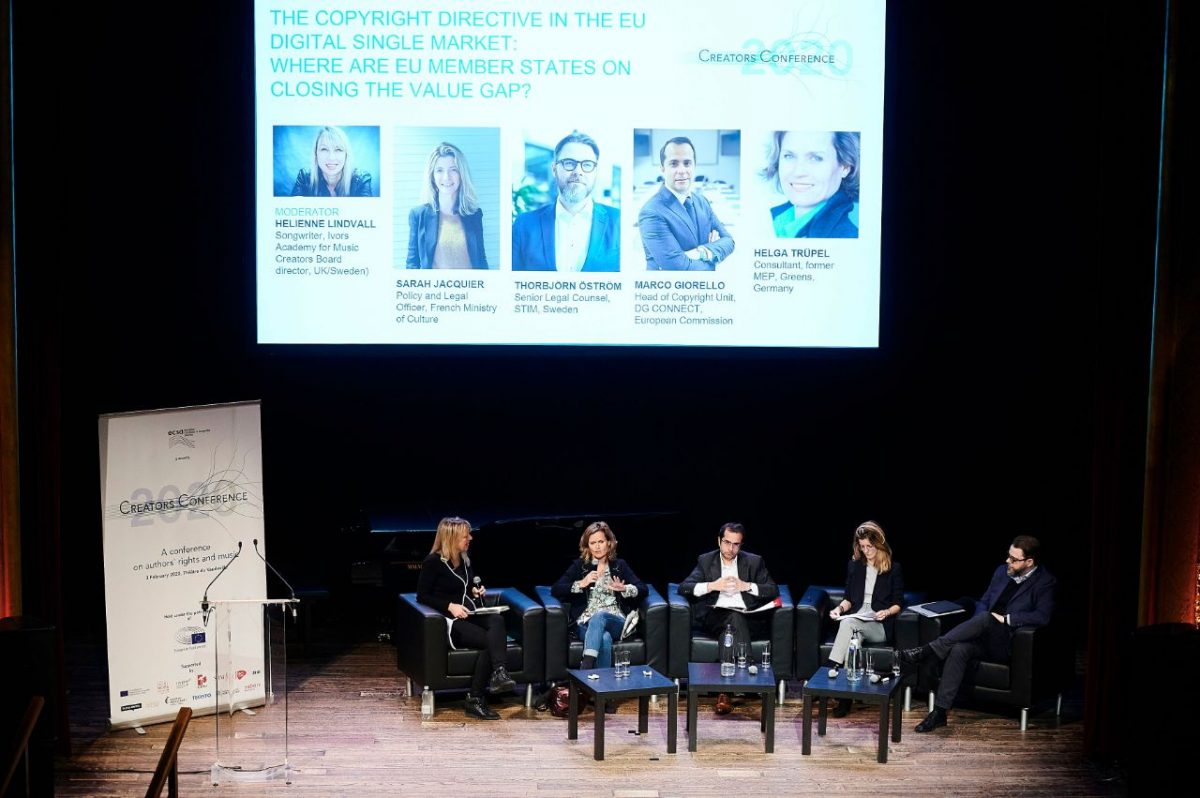Press release: At ECSA’s Creators Conference, European creators call for an ambitious and faithful implementation of the Copyright Directive at national level

Creators, EU policy makers and stakeholders gathered in Brussels to discuss present and future policies affecting European creators’ lives.
On 3rd February 2020, the Creators Conference 2020, held under the patronage of the European Parliament, took place at the Vaudeville Theater in Brussels. Organised by the European Composer and Songwriter Alliance, the event welcomed 150 participants for panel discussions around the most pressing policy issues concerning European creators nowadays.
ECSA President Alfons Karabuda started the conference by thanking the European institutions for the adoption of the Copyright Directive.
Europe made a promise and it delivered.
Then Viviane Hoffmann, Deputy Director General of DG Education, Youth, Sport and Culture of the European Commission, who represented Mariya Gabriel, Commissioner for Innovation, Research, Culture, Education and Youth as keynote speaker of the conference, opened the discussions by outlining the plans of the Commission for supporting the music sector.
Introducing the first panel entitled “Europe’s strategies for the creative and cultural sectors”, Jean-Noël Tronc (CEO, Sacem) stressed the need for a swift implementation of the Copyright Directive at national level to guarantee the right protection for creators against the big online platforms. During the panel, MEP Niklas Nienaß, highlighted that “creators are at the very origin of the economic strength of the cultural and creative sectors, yet their contribution is still undervalued both politically and economically.” MEP Tomasz Frankowski stressed the importance of the Creative Europe Programme:
Together with my colleagues at the EP, I will do my utmost to defend an ambitious budget dedicated to the Creative Europe programme 2021-2027 as I believe that European culture is the best vehicle to promote European values and European integration.
Barbara Gessler, Head of Unit for Creative Europe at the EC, explained that the objective of Music Moves Europe is to make European talent visible to the European citizens.
Before the second panel, Alfons Karabuda discussed with the representative of IBM Nordic Lars Wiigh about AI’s contribution to creativity. According to Wiigh:
The people who develop AI are like composers: creative, innovative and curious. I believe in the collaboration between the human brain and the vast potential of AI.
The topic of the second panel was the implementation of the EU Copyright Directive focusing on the provision of the liability of online content sharing service providers. Marco Giorello, Head of the Copyright Unit at the European Commission, explained that most of the Member States are in a preliminary phase for the implementation of the Directive, but he also highlighted how “we should be proud of what we have done. Our goal was bringing more fairness into the copyright environment and we did it”.
The last panel discussed buy-out contracts in the music and audiovisual sector. Pauline Durand-Vialle, CEO of FERA (Federation of European Film Directors) stated: “Buy-out contracts have a negative impact on freelance authors to build sustainable careers and develop new projects. Authors take significant risk in creating new works: they should therefore be entitled to a share in their economic success”. MEP Iban Garcia del Blanco, added to this:
All EU Member States should now engage in an ambitious and faithful implementation of the Copyright Directive to guarantee that all creators can fully benefit from the exploitation of their works.